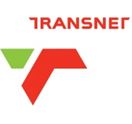Transnet

Transnet
South Africa, Industrials and Manufacturing
What Transnet says about its journey towards integrated reporting
More than ever before, there is pressure on state-owned companies (SOCs) to disclose both financial and qualitative (non-financial) performance information in terms of their contributions to the country’s overall economic efficiency and competitiveness.
In previous years, Transnet was predominantly focused on financial reporting in our annual reports, whilst elaborating on the outcomes of specific developmental mandates in terms of our sustainability reporting. This had the effect of highlighting our developmental outcomes but did not always report on the actual social and environmental impacts from our commercial activities. Our journey towards integrated reporting – and towards a more integrated, sustainability-oriented organisational mind-set – has led us to become more considerate about our impacts, both positive and adverse. It is therefore incumbent on us to demonstrate, tangibly, our equitable consideration and treatment of key stakeholder groups in the context of our long-term value creation.
Transnet does not receive subsidies or guarantees from Government. It raises funds in the debt markets based on the strength of its own balance sheet, having raised funding without Government guarantees since March 1999. Accordingly, we recognise that providers of financial capital expect clear and concise communication about our value creation, which includes a sound perspective on our strategic allocation of resources and the interconnectedness between our financial and non-financial impacts.
Additionally, investors – and indeed all stakeholders – are concerned with the transparency of our disclosures around ethical leadership, performance evaluation and the functioning of our Board Committees. The extent to which we are able to disclose transparently has much to do with our internal systems and processes; as well as the reporting competencies within the organisation and the willingness of employees to share information openly. In our reporting, we adhere to various benchmark frameworks and standards, including the Companies Act, IFRS and the IIRC’s International <IR> Framework. Unlike private companies, however, Transnet, as a SOC, is also mandated to report according to the Public Finance Management Act (PFMA), which compels transparent financial reporting in our integrated report, particularly in terms of the prevention, identification and reporting of fruitless and wasteful expenditure and losses through criminal conduct. To comply with the PFMA’s obligations, the Board of Directors has a materiality framework, which is approved by the Shareholder Representative. As we deepen our reporting within the wider organisation according to these multiple frameworks – most of which share the same principles of ethics and transparency – we are observing greater accountability in divisional reporting as well an improvement in the quality of information available for reporting.
Going forward, as our integrated reporting becomes more established, we will improve on the external assurance of reported information to give readers more comfort that the information they receive is credible and reliable.
Garry Pita, Chief Financial Officer
“The more vivid the connections between financial and non-financial performance become in our reporting, the greater the impulse to delve even deeper in our interrogation of the trade-offs in our decision-making as management. Personally, I see it as an ongoing exploration into the organisation’s business philosophy, its culture and values, its strategic impetus and the extent to which we can actually form a holistic picture of our operations, our relationships and the outcomes of our activities.
I am also observing a growing trend within Transnet where more and more people in the Company are contributing to the formal process of our integrated report. In previous years, it was a relatively small group of internal reporters working together with external specialists. There is definitely more interest from within the organisation to participate in the process and to ensure that divisional performance is accurately presented and clearly communicated. This ethos also comes with greater personal accountability and transparency of reporting disclosures. It would suggest that our annual reporting is becoming more than a statutory obligation; we are actively framing present and future organisational contexts in more all-encompassing ways. In part, I believe this is because Transnet’s ‘value story’ is becoming clearer. There is also a greater awareness that intangible assets or value, much like non-financial performance, have become more important for readers of our reports – particularly investors in their valuations of the long-term profitability and sustainability of the company.”
Read Transnet’s Annual integrated report 2019 here.
About Transnet
Transnet SOC Ltd is a public company, with the South African Government being its sole shareholder. With 58,828 employees, Transnet’s overarching value proposition is the modernisation and renewal of South Africa’s transport and logistics infrastructure through strategic investment in rail, ports, and oil and gas pipeline infrastructure; cost-effective logistics value chains; value-added services; and advanced engineering solutions.
The Company operates through five Operating Divisions spread throughout South Africa: Freight Rail, Transnet Engineering, National Ports Authority, Port Terminals and Pipelines. Additionally, four satellite offices are located in Lesotho, Tanzania, Namibia and Swaziland; with three joint operating centres in Mozambique, Botswana and Zimbabwe.
As a national provider of logistics infrastructure, Transnet’s services are both outbound (South African businesses moving products to international markets) and inbound (bringing products to South African markets). Commodities transported include mining exports, general freight and petroleum products.
Transnet’s strategic outlook encompasses the expansion of its commercial footprint in the fast-growing regions of Africa, Middle East and South Asia; as well as product and service innovation to transform from a transport and cargo handling-focused business to an integrated, end-to-end logistics service provider. The Company further intends to expand the scope of its advanced manufacturing business, with leading technologies to enhance new and existing products
